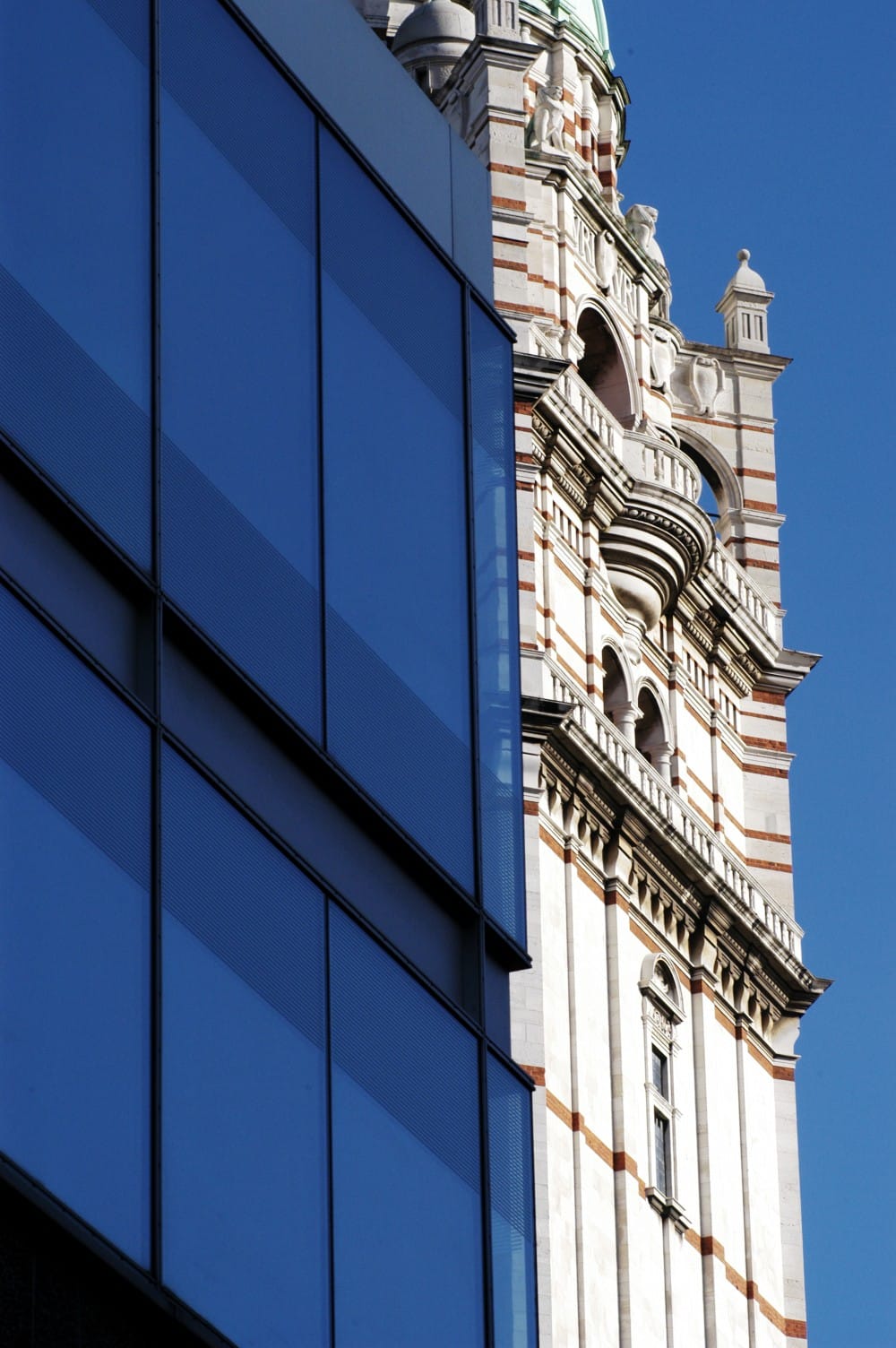Trust your Trustees?
Our Union loves touting its democratic credentials, but how much of what goes on do we really know about?

One month, and one more record-breaking election, has already passed here at Imperial. Last week, new student reps were elected in every department, and though turnout figures are certainly worth celebrating, today I want to talk about what comes next.
Every day decisions are made in our name that we never really hear about: at College and departmental meetings, by Union Council (made up of elected student reps), and by the Union’s Board of Trustees (a handful of students and externally appointed ‘laypeople’, and our sabbatical officers). Even when items are technically public, there’s a limit to the amount of digging its reasonable to expect full time students to be doing in their off-hours, and mass emails are far from perfect (does anyone read them?).
Last year I was elected to Trustee Board on a platform of transparency, and with that in mind I will be writing articles periodically to let any interested students know what’s going on in the Union and more generally at the university. I won’t pretend to be impartial, but I will try to explain things with which I disagree in good faith. I’d encourage you to at least skim these pieces; there will almost certainly be at least one or two things in here that matter to you, and it’s difficult to do anything about them without being informed.
Course content in every department is being reviewed
I’ve mentioned this before, but its probably the single most important thing happening on campus this year. Departments have until March to finalise their proposals on changes to their curricula, and though your academic reps should already be aware of and involved in this process, it wouldn’t hurt to nudge them if you have any concerns. Search for “Imperial College Representatives” if you don’t know who they are.
Room bookings
This has been the cause of a lot of frustration for many societies so far this year. Consternation at the slow pace of change here is understandable, given that this isn’t the first time there have been issues around room bookings. I’ve been told that part of the problem this year has been that clubs’ annual bookings took so long to validate that start of term ad hoc bookings were disrupted. Conversations are currently taking place around automating the former to leave more time for the latter. Hopefully, this approach and the Deputy President (Clubs and Societies)’s focus on “improving processes” will help ameliorate this issue, and I intend to keep raising it until there is a real solution.
Squash Courts/Ethos
A paper was brought to the last Council meeting discussing pricing at the Ethos squash courts relative to other venues. Naturally, the debate touched on the wider issue of the Ethos price hike where (lest we forget) the university broke its word to all returning students and increased the charge from a one off £40 to £30/year. This would be a great rate for consumers, but we aren’t consumers, we’re students. Imperial as a whole, runs a significant surplus (£119m in 2016-17), orders of magnitude greater than its projected gains on this price hike. It is also worth noting that direct student contributions still constitute a relatively small proportion of the Ethos budget, begging the question – why increase these rates at all?
Considering this, one of the most important points raised at Council challenged the idea that in order to fund (for example) cheaper squash courts, Sport Imperial would have to take money from one of their other offerings. These budgets aren’t zero sum games, each service doesn’t exist in a vacuum. Providing fairly priced, comprehensive services for students may involve reaching beyond preordained demarcations in the budget and questioning the underlying assumptions College uses to decide where its money goes.
Pay rises for student bar staff
Last year, the bar staff organised a petition for pay to be increased to the London Living Wage, in line with other major London universities (notably UCL, KCL, LSE). This petition garnered over 900 signatures, though at the time the Union and the then Deputy President (Finance and Services) rejected the move to a Living Wage. Their rejoinder was that money could be better spent elsewhere and price rises should be avoided, though it should be noted prices did end up rising anyway.
This year, agitation around pay increases has restarted, citing the taxing nature of the work - particularly in conjunction with full time study, the pay at other student bars, and potential alternative sources of funding (i.e. without raising prices in the bar). Thus far, the outcomes of this remain to be seen.
Postgraduate (PG) Representation
Physics PG Rep and Natural Sciences PG Rep to Council Lloyd James has been working on the issue of PG engagement and representation at Imperial. His proposal consists of steps that would give PG students the opportunity to participate more actively in the relevant Constituent Unions (CGCU, ICSMSU, RCSU, RSMU) which currently solely cater to undergraduate students. This would not affect their membership of the GSU. A discussion on this matter will take place at the next Union Council meeting November 13th, 6.30 in RSM G.01. These meetings are public, so feel free to attend.
Graduation Speech.
Union President Rob Tomkies was prevented from giving his own speech at the graduation ceremony this year and was instead compelled to deliver the same prepared remarks as in every prior year since 1949. While there’s nothing necessarily wrong with tradition, the existing address’ appeals to monarchism, imperialism and nationalism (in both Latin and English) miss the mark for a cosmopolitan university in the 21st century. Rob is currently working with College to ensure future speeches of this kind better reflect our values.
Penalties for Sexual Misconduct
Daniel Wigh, Chair of the ‘Knowledge Sector’ (which handles admin for the set of clubs focussed on careers, debate and education, such as FinanceSoc and Debate) successfully passed a paper at Council toughening punishment for those found guilty of non-minor instances of sexual misconduct. Going forward, in addition to other sanctions, these individuals would be prevented from holding any elected office in the Union (i.e. as a rep or on any society committee). Given issues in this area in the past, this is a highly commendable step. As was said in the meeting, any student should be able to take for granted that their fellow students in positions of power haven’t acted abusively.

Stocking of Tabloids in the Union Shop
Ansh Bhatnagar, Undergraduate Rep to Council from Natural Sciences, proposed a paper mandating the Union to cease its stocking and selling of the Daily Express, Daily Mail and the Sun, due to their explicitly racist content. This led to an impassioned debate on free speech vs. what we’re comfortable promoting, with a compromise that these papers will remain in stock but any proceeds from their sale will be directed to anti-racist campaign groups, and the Union will take a more active stance in raising complaints against inflammatory articles.
Divest Imperial.
Twice in as many weeks, students from Divest Imperial, the campaign pushing College to withdraw its investments from Fossil Fuels, have been displaced by Campus Security for handing out fliers and holding up placards near where events with government and fossil fuel companies are being held on campus. Given that their protests in these cases were not disruptive, and that we have a mandate to protect free speech, I will be working to lessen this kind of undue interference, and hope and expect for Union backing to this end.
Left Forum Event
A “Lockpicking Workshop” event organised by the Imperial Left Forum was this week indefinitely postponed by the Union. The organisers were told this was because the content of the event did not match up well to the aims and objectives of the society, while at a Trustee Board meeting the sabbatical officers also cited the large number of responses on the Facebook event (1.6K going or interested) as a concern, as well as the large numbers of non-students responding to the event and the lack of an event budget (though I’m not sure one was necessary in this case). My own view is that, once any practical considerations around e.g. numbers are resolved, the event should go ahead. Our societies should be able to host their own events without interference if they aren’t violating any rules around (for example) inclusivity or financial responsibility.
NSS/PTES Response
Responses to the National Student Survey and Postgraduate-Taught Experience Survey were produced (in record time) by this year’s Deputy President (Education) Alex Luy. The responses include recommendations on training for weaker members of staff and reviewing marking criteria. The full documents are available on the Union website.
Summer Ball
Given concerns around space and student numbers, it is possible there will be a search for an alternative (off-campus) venue for the 2020 Summer Ball.
This is far from a comprehensive list, and some key issues such as the fight for a common room for Life Scientists and the Counselling Service will appear in future articles. Nonetheless, I hope this has been a useful window into goings-on in the Union. If there’s anything you want further clarification on, or anything you would like me to raise, please get in touch at: abhijay.sood15@imperial.ac.uk







